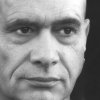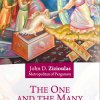John Miljan (Serbian: Јован Миљановић; November 9, 1892 – January 24, 1960) was an American actor of Serbian origin. He appeared in 201 films between 1924 and 1958. He was the tall, smooth-talking villain in Hollywood films for almost four decades, beginning in 1923. He made his first talking debut in 1927 in the promotional trailer for The Jazz Musician inviting audiences to see the upcoming landmark film. In later years he played imposing, authoritative parts such as high-ranking executives and military officers. He is best remembered as General Custer in Cecil B. De Mille's epic The Plainsman.
He died from cancer in Hollywood, Los Angeles. He was married to Victoire Lowe and adopted her two sons from her first marriage to Creighton Hale, the actor.
Selected filmography:
- The Lone Chance (1924)
- Silent Sanderson (1925)
- The Devil's Circus (1926)
- The Little Snob (1928)
- The Unholy Night (1929)
- Hardboiled Rose (1929)
- The Woman Racket (1930)
- The Unholy Three (1930)
- The Sea Bat (1930)
- Iron Man (1931)
- Arsène Lupin (1932)
- The Rich Are Always with Us (1932)
- Whistling in the Dark (1933)
- What! No Beer? (1933)
- Young and Beautiful (1934)
- The Ghost Walks (1934)
- Charlie Chan in Paris (1935)
- Mississippi (1935)
- Tomorrow's Youth (1935)
- Private Number (1936)
- The Oklahoma Kid (1939)
- Emergency Squad (1940)
- Women Without Names (1940)
- Obliging Young Lady (1942)
- The Fallen Sparrow (1943)
- I Accuse My Parents (1944)
- The Merry Monahans (1944)
- Back to Bataan (1945, uncredited)
- Stampede (1949)
- Samson and Delilah (1949) - Lesh Lakish
- The Ten Commandments (1956) - The Blind One
- The Lone Ranger and the Lost City of Gold (1958) - Chief Tomache
- Dead Men Don't Wear Plaid (1982 - archive footage)
Links:





